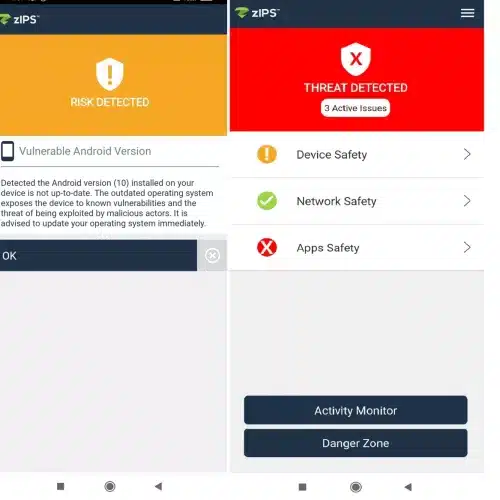Pegasus Spyware: One booth stuck out amid the many others at the International Police Expo, which was held in the national capital last week and featured the newest developments in cyber security and intelligence technologies from both national and international firms.
Although the technology provided neither a surveillance solution nor a tactical weapon, it was able to attract the attention of the who’s who of India’s internal security and law enforcement apparatus. A mobile device security technology was used, and the company claims that it has prevented “every variation of the Pegasus assault” in its five-year history.
Zimperium to protect against Pegasus Spyware
With the United States Department of Defense (DOD), Zimperium, an American technology company that specializes in mobile phone security, has just received a contract to provide a comprehensive Mobile Endpoint Protection (MEP) solution.
Somesh Sawhney, Zimperium’s regional sales director, who had traveled all the way from Dubai for the event, told the media agencies that there had been a lot of interest in the technology from both the government and the enterprise sectors in India since the recent Pegasus episode came to light. “It was a great event,” Sawhney said.
“We discovered the original variation of Pegasus in 2016, and all of our corporate and government customers are protected even if the latest variant is identified as a zero-day exploit. There is no need for signature updates because we are a complete on-premise solution, so even if your phone is not connected to the internet or does not have access to the internet, your data is still secured “Sawhney went on to say.
What It Does and How It Works
Mobile Threat Defense is an engine within the application that utilizes machine learning to identify device and network behavior as well as malicious assaults in real-time. It is optimized for mobile devices, and it is compatible with the iOS, Android, and Chromebook platforms.
When asked about the procedure, the Zimperium representative said that the “on-device solution” sits on top of the operating system and identifies and notifies users about risks before preventing them from occurring.
Zimperium may have some secret sauce that protects devices from zero-day attacks, such as those used by Pegasus or similar spyware programs, even though the technology sounds similar to adaptive threat defense — also known as heuristic detection — that has been used for years by anti-virus and anti-malware apps on mobile phones and computers.
However, it should be noted that Pegasus-like malware infects devices through the use of very clever and entirely undiscovered zero-day flaws. Typically, anti-virus and anti-malware software are useless against these types of threats.
Speaking on the deal with the United States Department of Defense, Sawhney stated that “we are really fortunate to have received this eight-figure contract from the United States Department of Defense.
“We are responsible for securing more than half a million gadgets belonging to members of the United States military services. Because they recognize that this (mobile phone devices) is the most susceptible endpoint, they are attempting to safeguard their officials against similar attacks such as the Pegasus attack.”
The Dallas-based technology business, which was selected by Google as one of three technological solutions to scan apps in its Play Store, has a customer roster that includes many Fortune 500 firms.
“This technology is trusted by 3,000 business clients across the world, and we have significant references in every industry, including the financial sector, automobiles, healthcare, pharmaceuticals, and the list goes on,” says the company’s CEO Sawhney spoke to some media agencies about his work. Since the Pegasus controversy resurfaced earlier this year, the business has seen an influx of inquiries from clients in the Indian public and private sectors alike.

When asked about the possibilities for India, he stated, “There is a great deal of interest, particularly from the governmental sector and from major companies such as pharmaceutical corporations.”
In addition, the firm has been providing its services to governments and major corporations throughout the world, claiming that its services are inexpensive and cost far less than the danger associated with a potential compromise.
“The cost of an assault on a company today is, I believe, 20 to 50 times more than the cost of this technology. Given the amount of money that most businesses spend on information security today, this is a very affordable technology. In a zero-trust environment, this is considered to be peanuts when compared to the amount of money that most businesses spend to secure their one fundamental endpoint “Sawhney went on to say more.
Samsung, a phone manufacturing business, is one of the company’s investors, along with Japanese multinational conglomerate Soft Bank and several other venture capital and private equity companies. Soft Bank is the company’s largest shareholder.
According to some estimations, the mobile anti-malware industry was projected to reach $12 billion in the next five years. However, the current focus on the Pegasus incident, as well as the growing popularity of remote working as a result of Covid, may cause the market’s worth to rise even higher.

